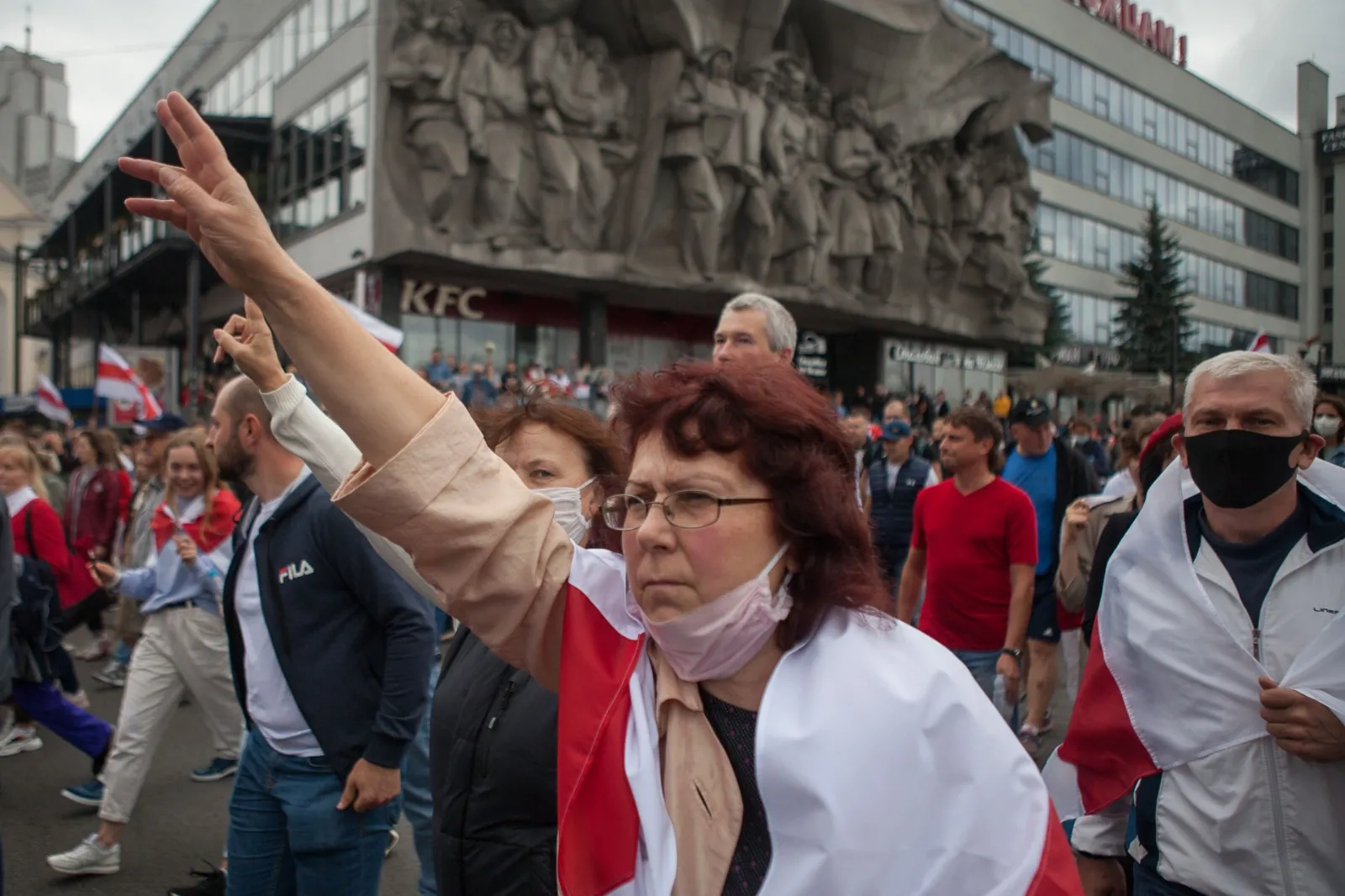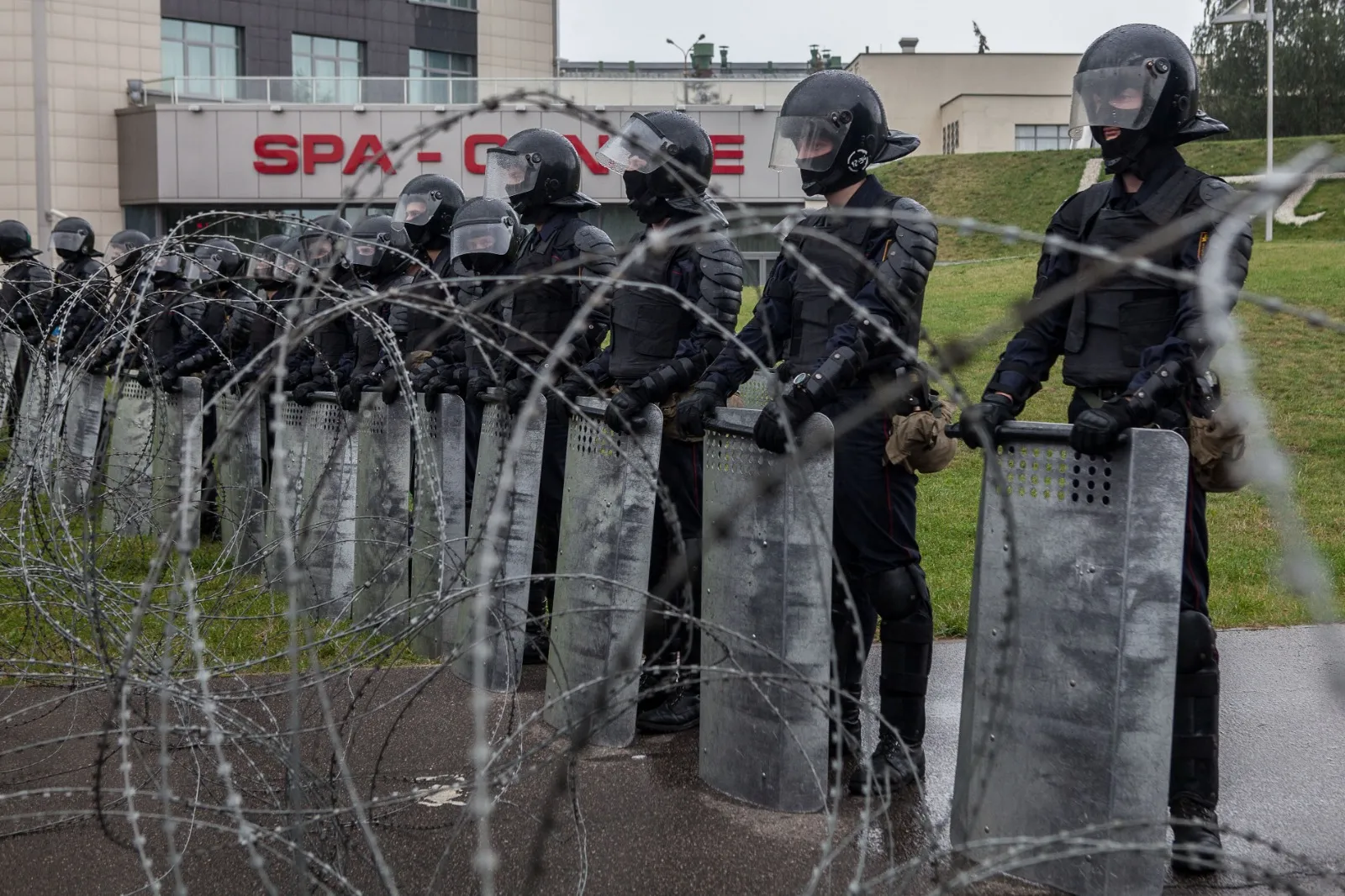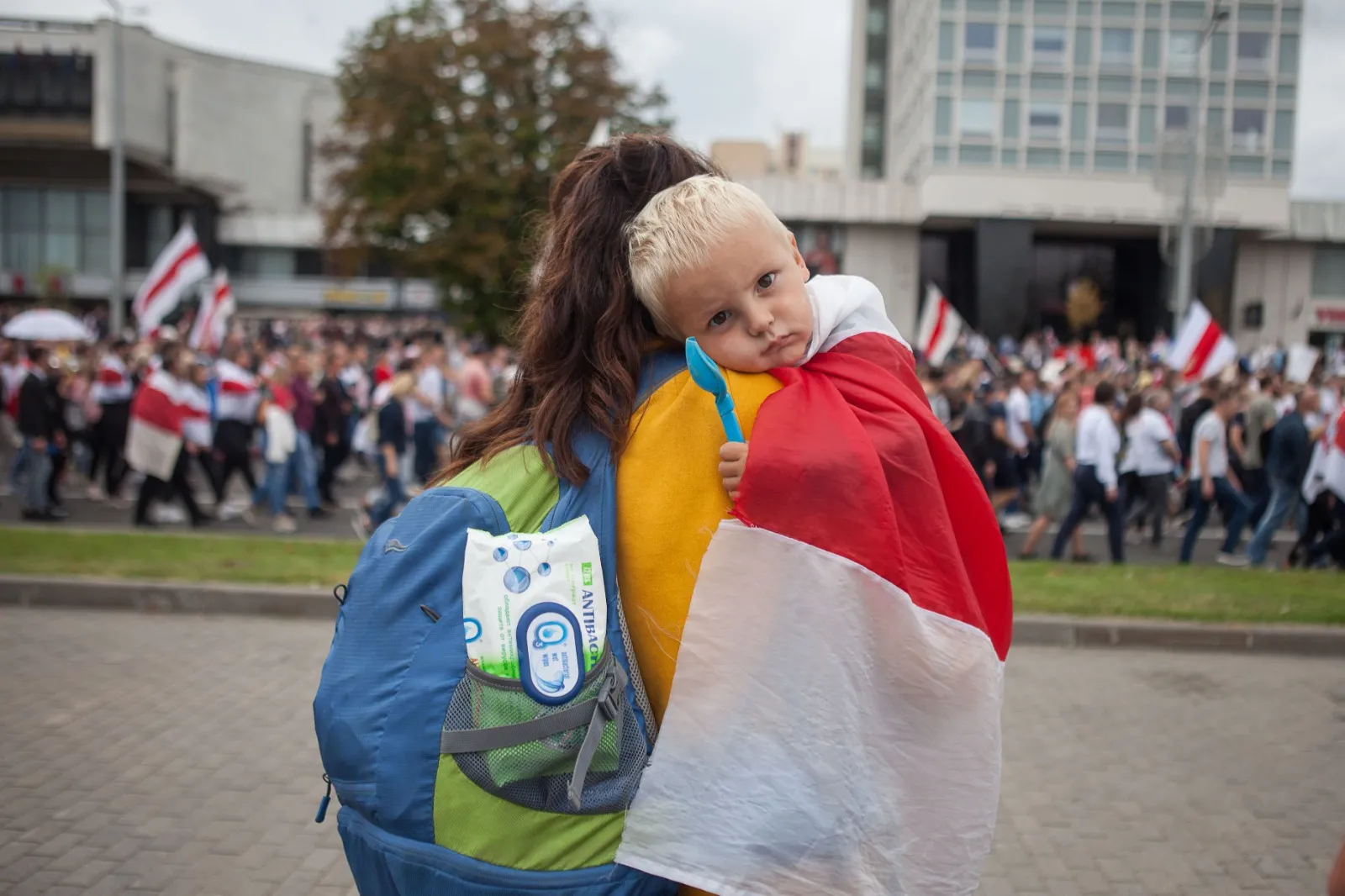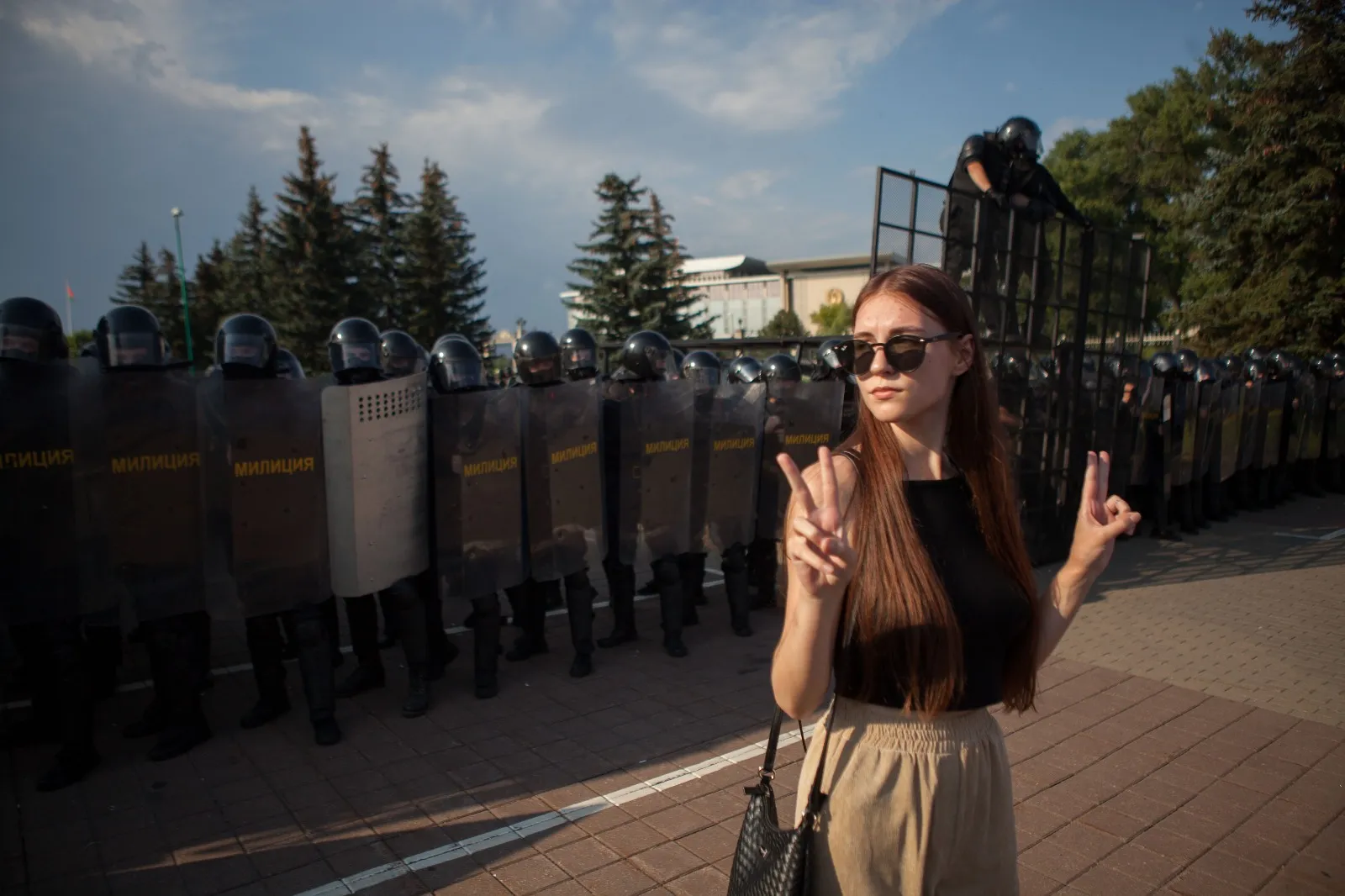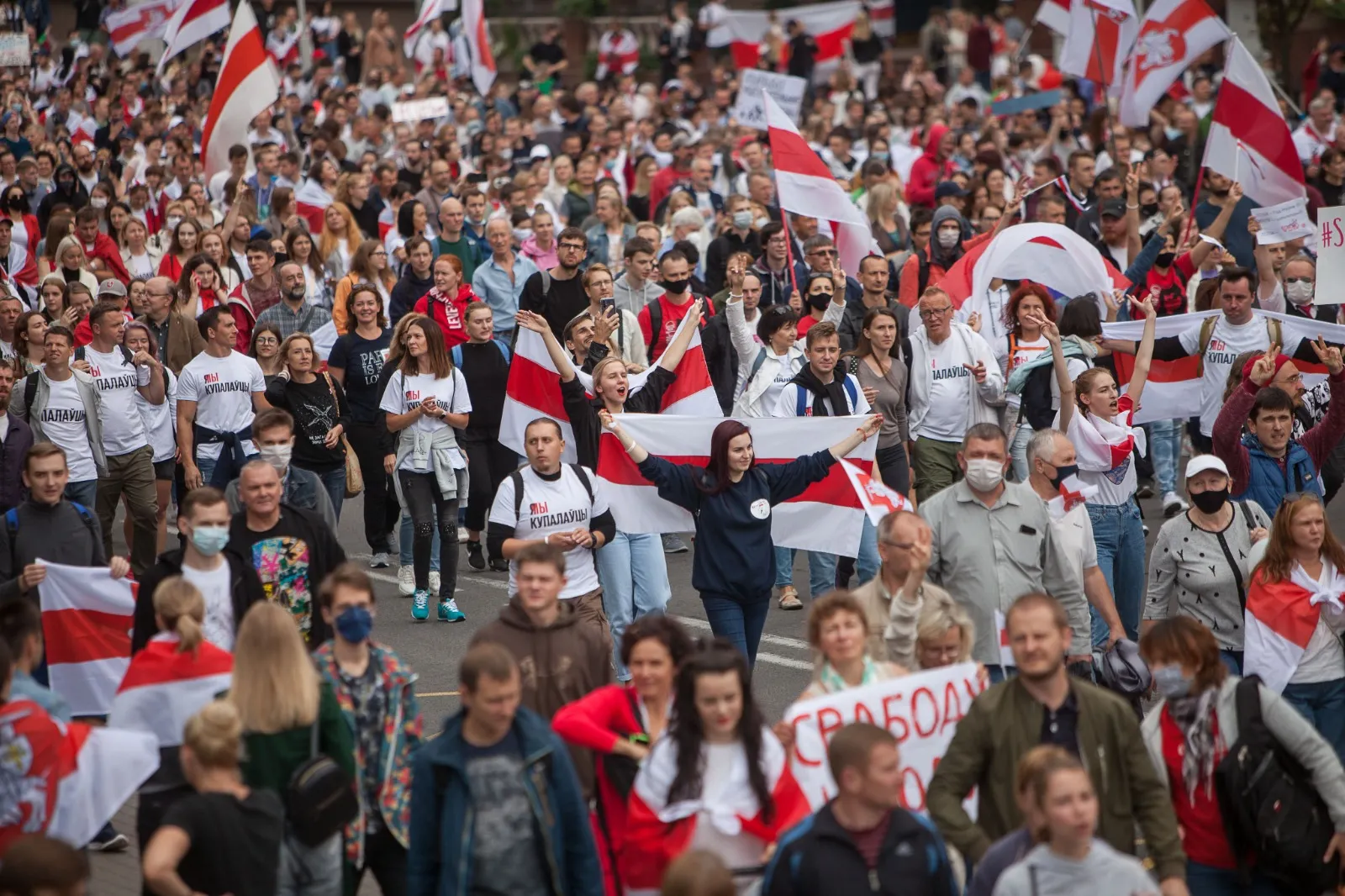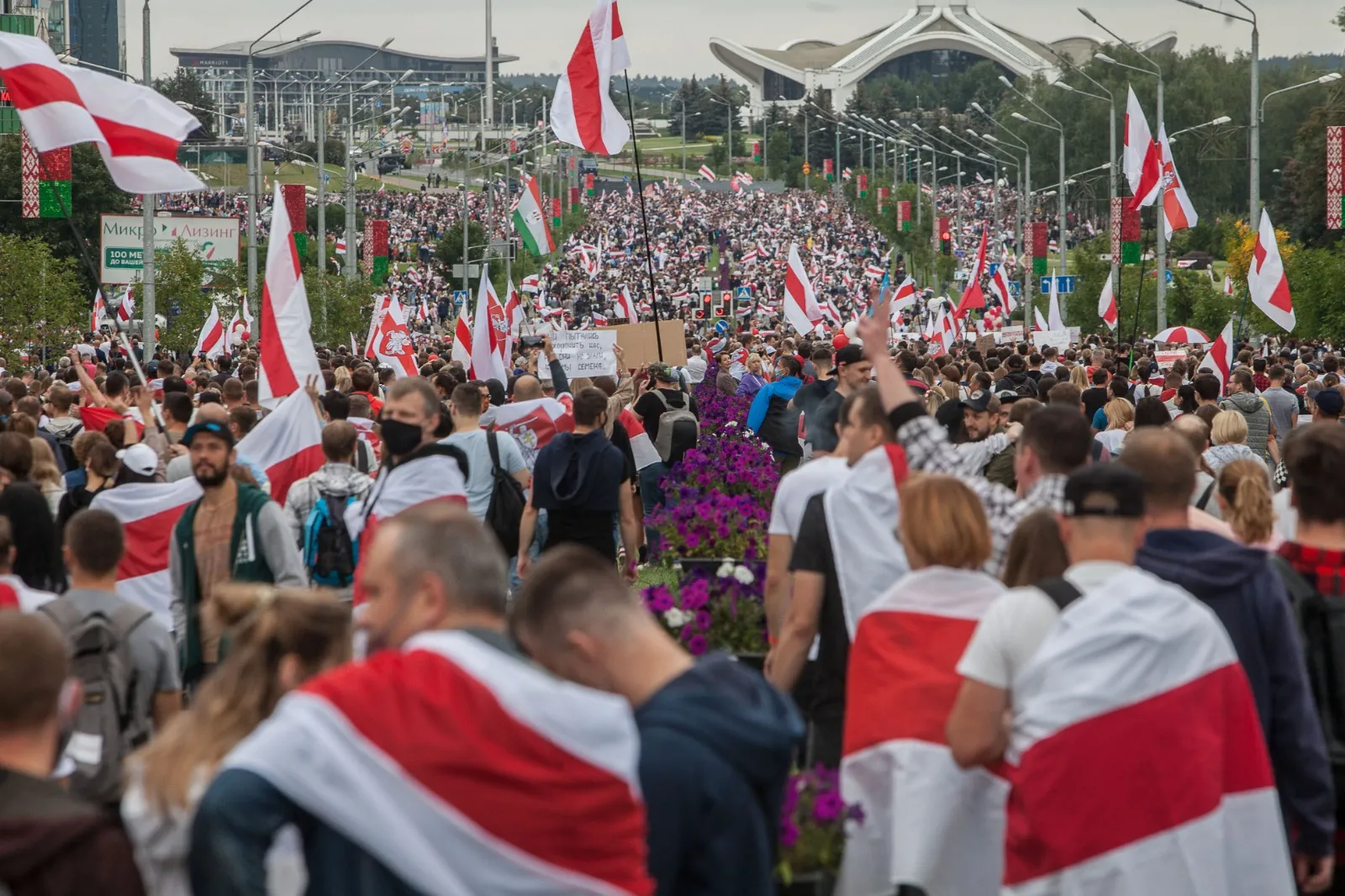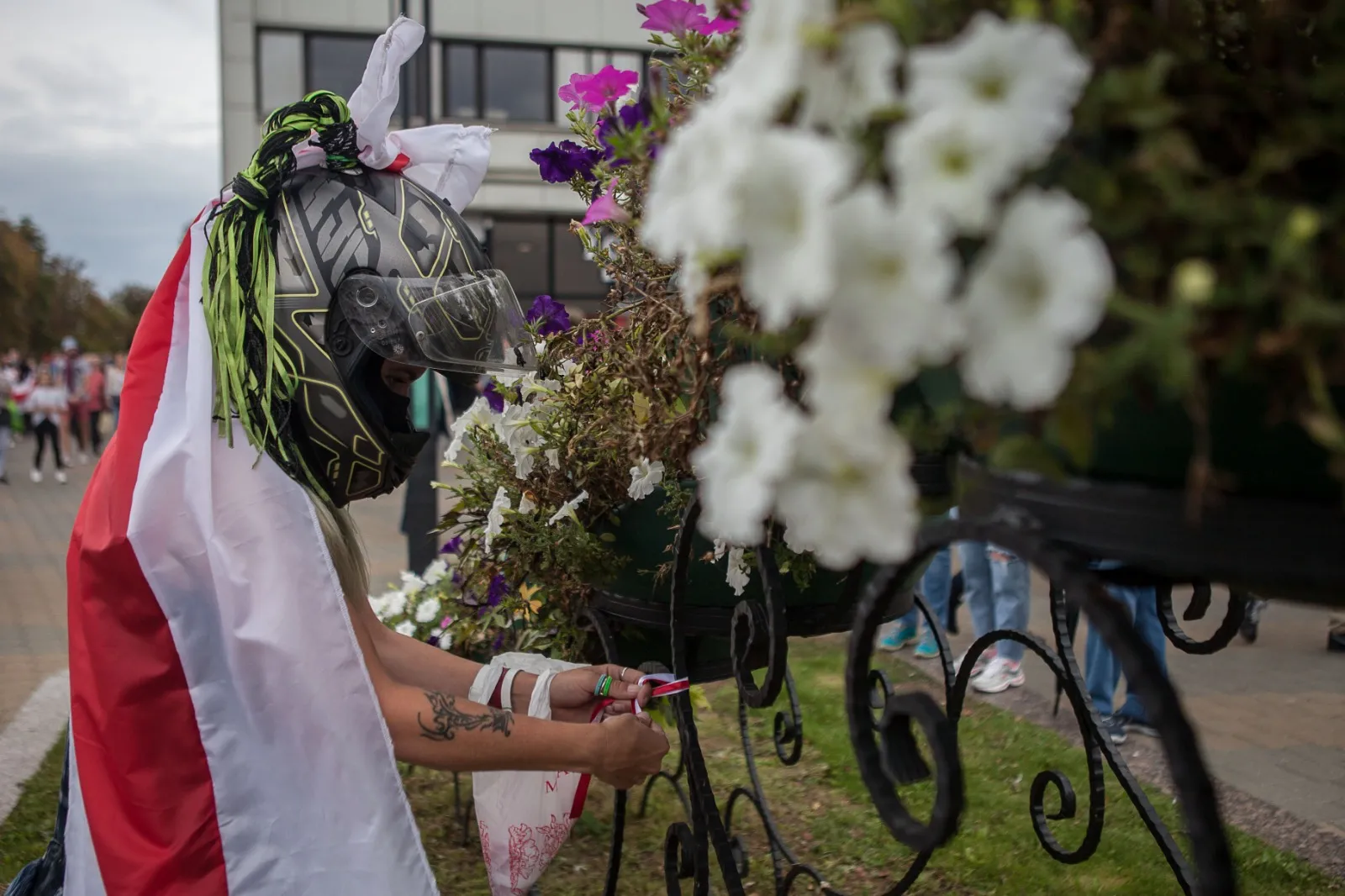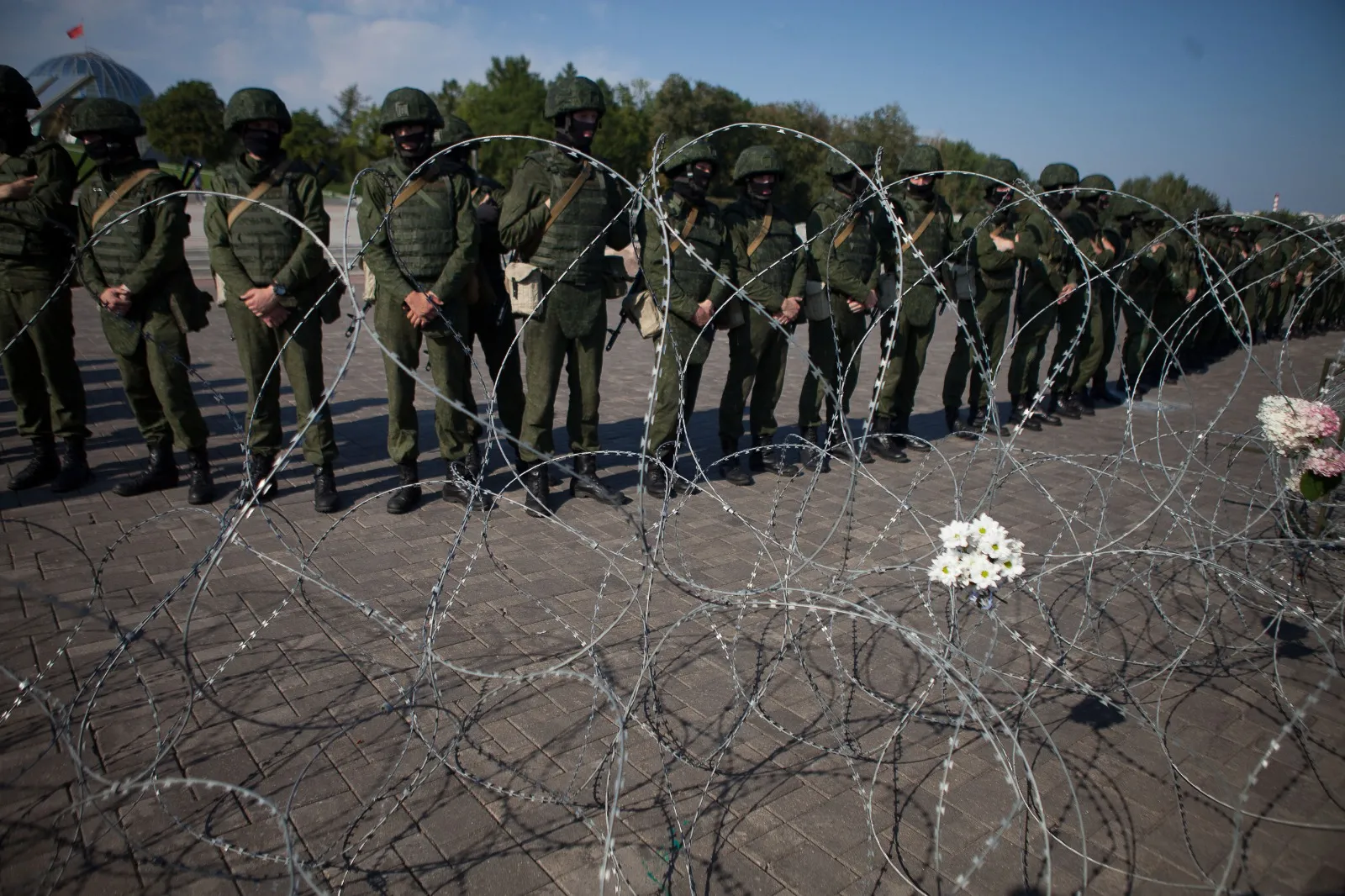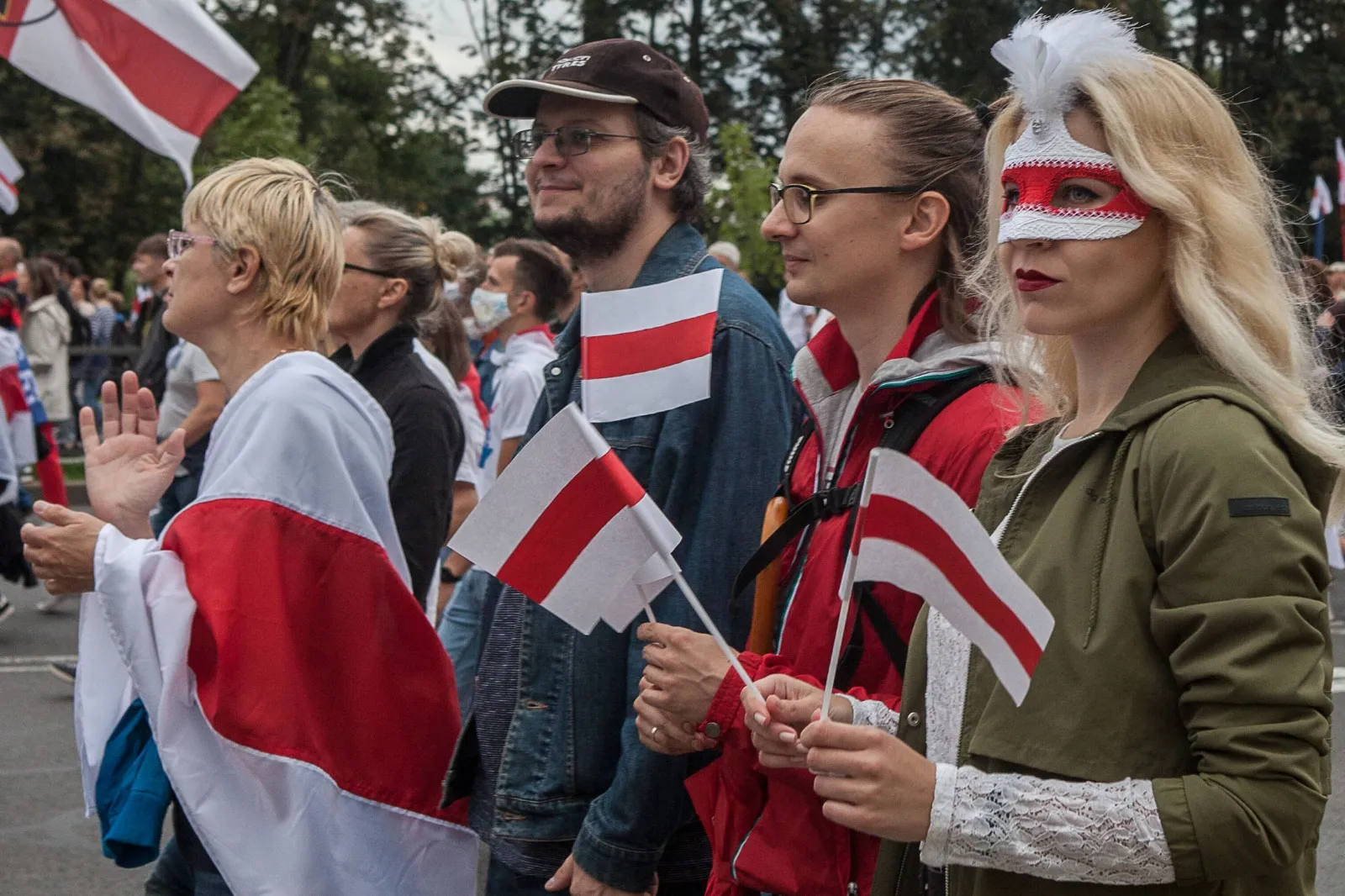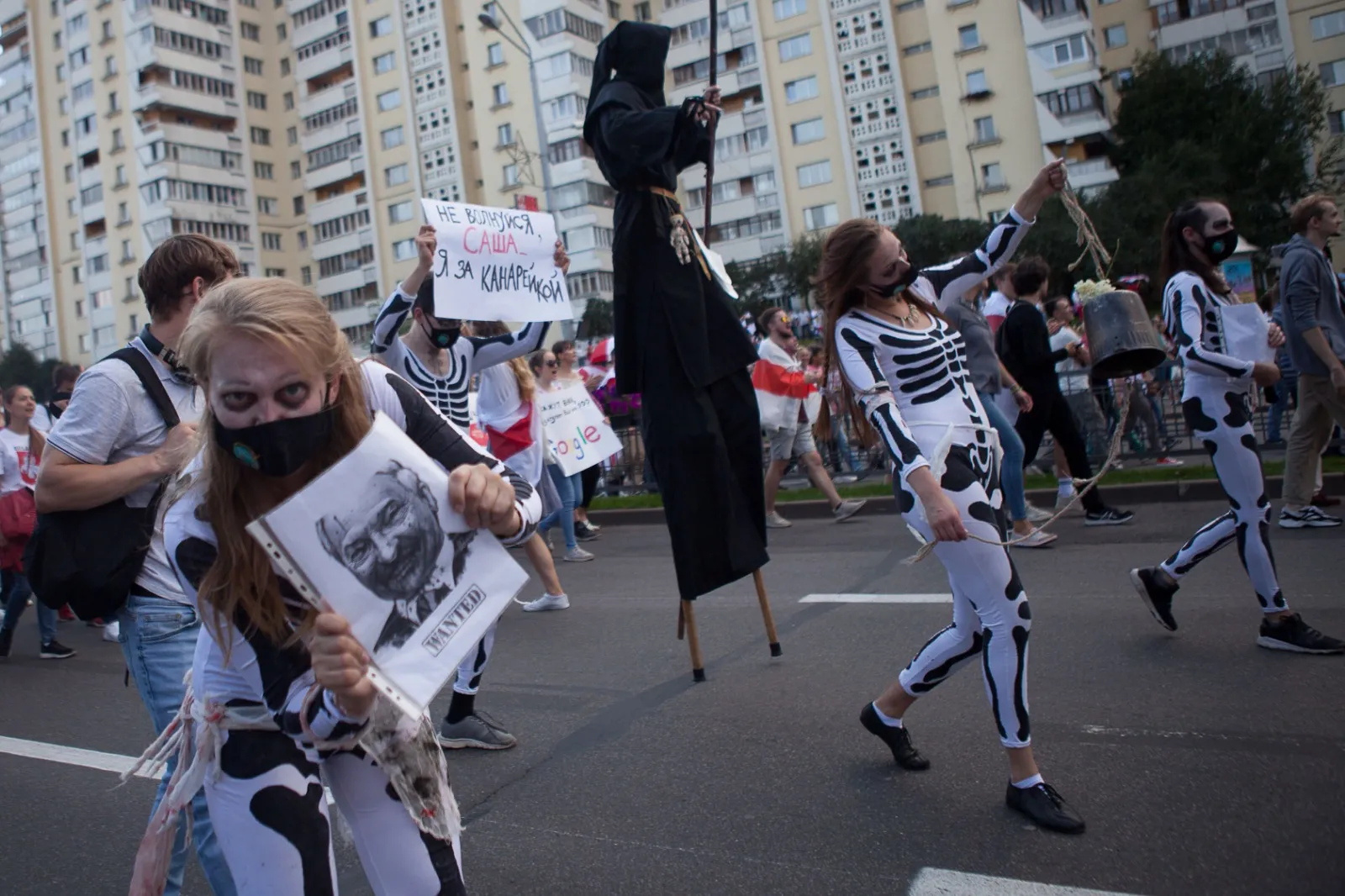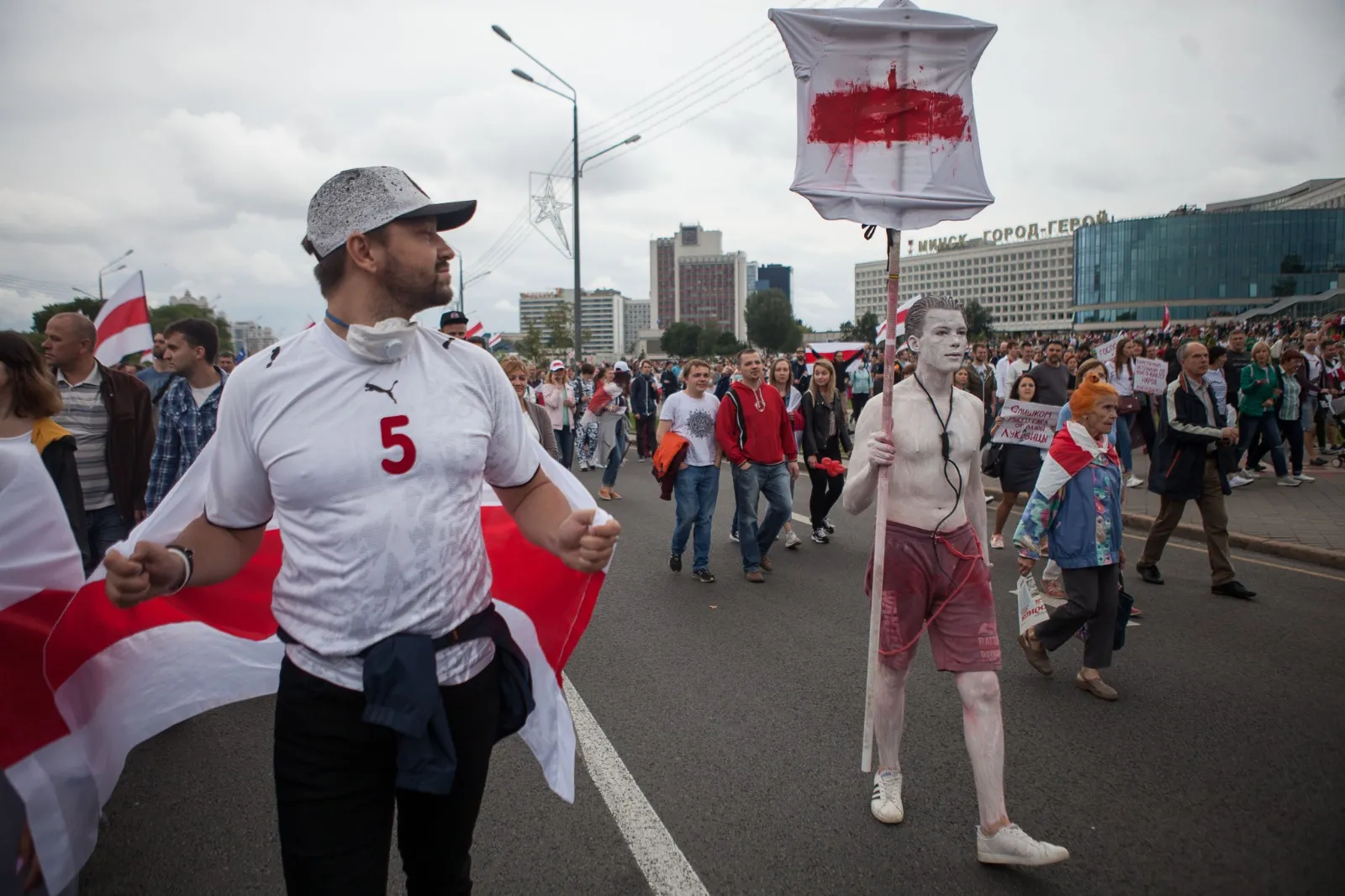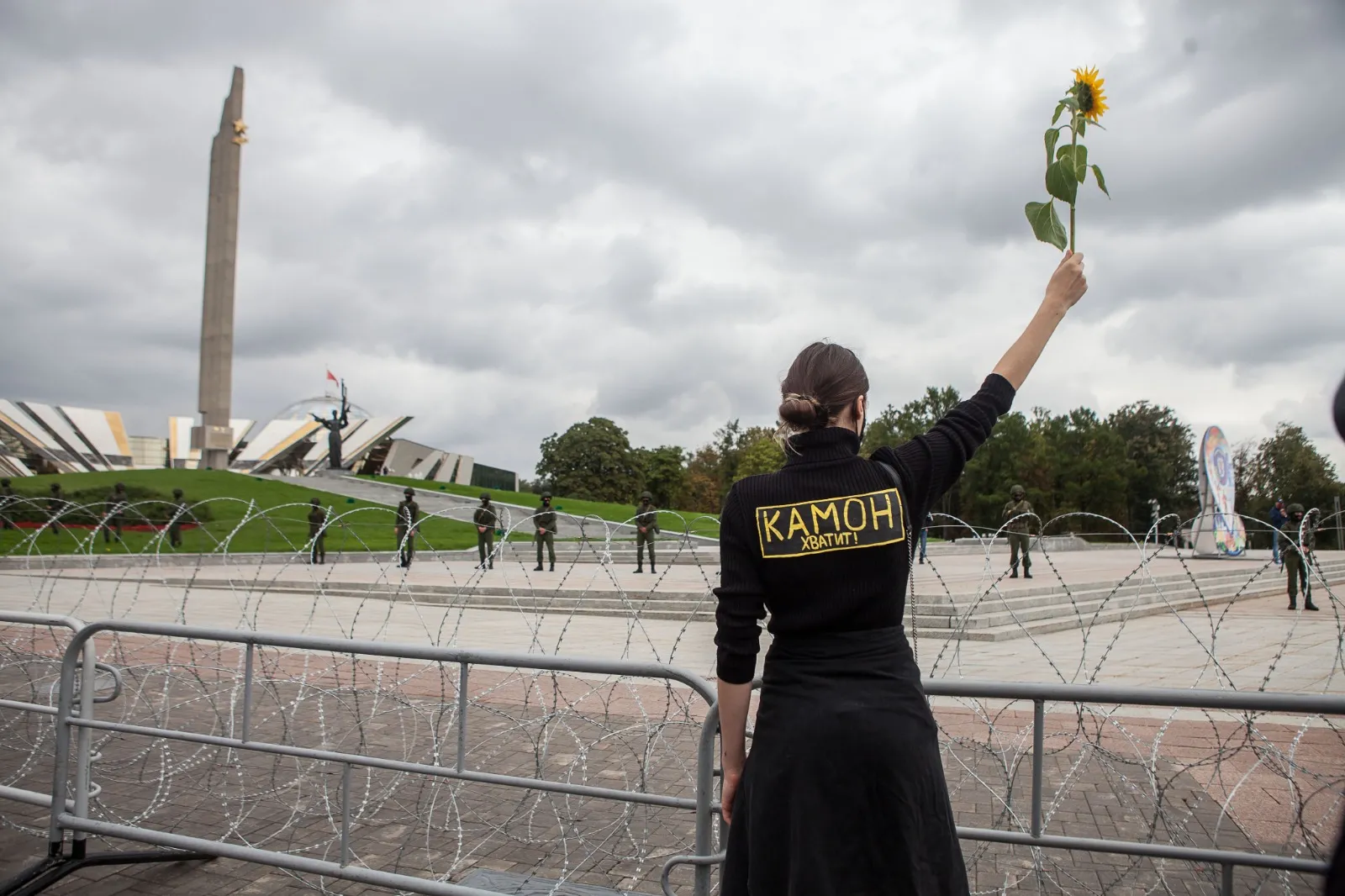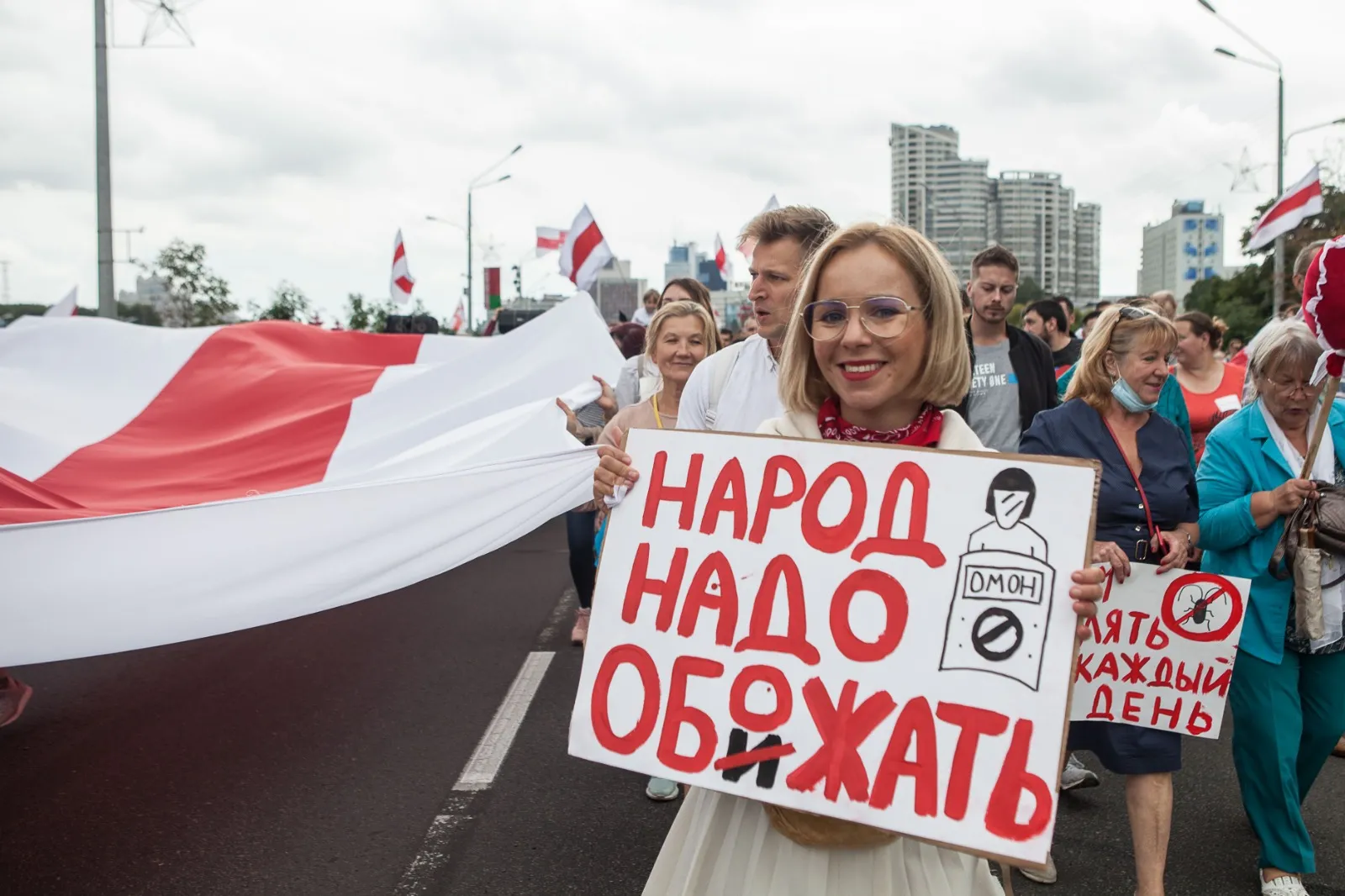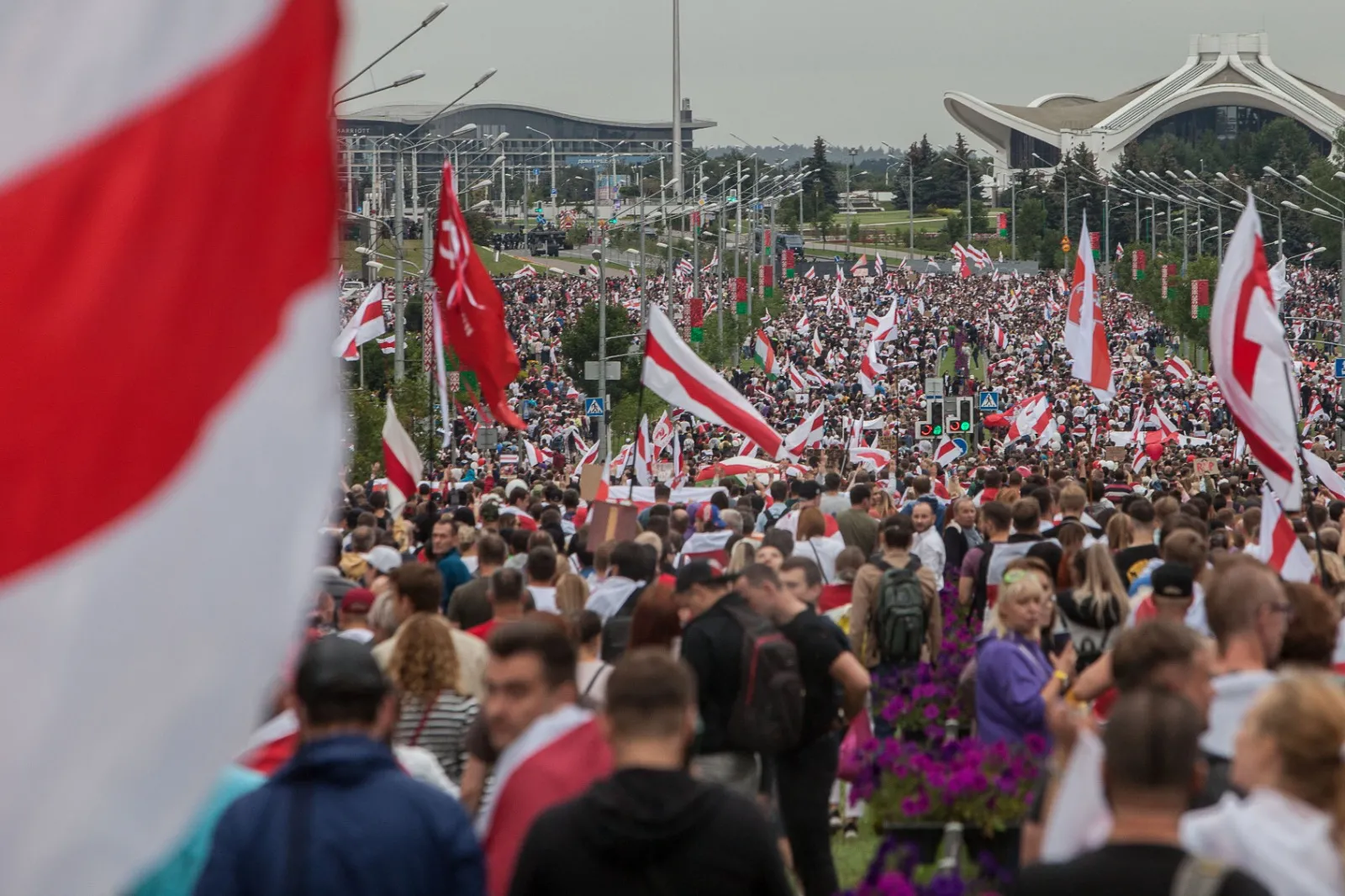On the Ground with Protesters, Democracy Builders, and Civil Society
In 2020, mass protests erupted in Belarus following yet another rigged election in a country that has been under authoritarian rule for decades. The protest movement started with young people, but quickly swelled to include hundreds of thousands of Belarusians of all ages and from all walks of life. With enormous brutality and the backing of Russia’s President Vladimir Putin, Belarusian ruler Alexander Lukashenko crushed the protest, imprisoning thousands.
The world was witnessing the new strength of Belarusian civil society, a development the German Marshall Fund had seen coming. For many years before 2020, it had quietly supported civil society initiatives in Belarus, from local book clubs, libraries, and cultural initiatives to shelters for victims of domestic violence and aid for depopulating villages.
Supporting civil society in Eastern Europe has long been one of GMF’s signature activities, offering direct assistance in the name of its mission.
Supporting civil society in Eastern Europe has long been one of GMF’s signature activities, offering direct assistance in the name of its mission. This type of support is rarely heralded in news stories because grassroots work does not lend itself to headlines. Often, the beneficiaries of this assistance prefer to go unnamed or to not have their activities advertised.
At the end of the 1980s, thanks to courageous protesters, communist rulers in Eastern Europe were forced to resign. In order to build participatory and sustainable democracies, strong and active civil societies would be needed. Which is why GMF, as a transatlantic organization, quickly took on strengthening civil society in Eastern Europe. As described in an internal memo from 1990, the organization decided to shift its “funding focus toward increasing the involvement of citizens in decision-making, in response to the lack of such a tradition.”
With the Balkan wars and NATO enlargement, GMF’s Eastern European activities expanded. While it had initially handed out small grants to individuals and groups on a mostly ad hoc basis, it soon transitioned into developing regional strategies for its activities, resulting in the founding of the Balkan Trust for Democracy in 2003, the Fund for Belarus Democracy in 2005, and the Black Sea Trust for Regional Cooperation in 2007.
What has made these programs a success, and in some cases a blueprint for others, are the four principles they rely upon.
With the Balkan wars and NATO enlargement, GMF’s Eastern European activities expanded.
First, “it’s up to local partners to suggest which initiatives the money should go to,” says Jörg Forbrig, who manages the Belarus fund out of GMF’s Berlin office. “Only locals have the knowledge and can assess likely reception, value, and potential risks of any given initiative. After all, it is locals who need to take the fate of their country into their own hands.”
Second, a functioning civil society should be diverse and inclusive. Therefore, GMF offers between dozens and hundreds of grants each year, rather than focusing on a few big projects, to ensure that many different civic initiatives can benefit from financial support.
In 2005, one of GMF’s first grants went to the Belarus Free Theater, an underground company that performed in garages and derelict houses. The organization has supported rock bands and independent galleries, offered reintegration assistance to prisoners, and helped professional associations. The writer Svetlana Alexievich, who was awarded the Nobel Prize in literature in 2015, was a grant recipient, as were several initiatives that monitor government activities.
Third, GMF’s Eastern European activities are designed for the long haul and often financed by outside sources that share such a long-term commitment.
Fourth, GMF does not seek short-term political changes. “Our goal is a sustainable and thorough development that includes people from all walks of life,” says Forbrig. “We want to look at civil society in very broad terms.”
After Lukashenko’s brutal crackdown that began in 2020, many of the activists who had been working with GMF were forced to flee. GMF helped thousands of Belarusians to find shelter and work abroad. This pattern has been recently repeated, with several grantees of the Black Sea Trust receiving support to leave Ukraine.
Were all the efforts of the past 15 years simply in vain? No, argues Forbrig, pointing to Poland’s example—after the imposition of martial law in December 1981, an agile civil society re-emerged in exile and the shape of a democratic future emerged. Today, there is a Belarusian university in Lithuania’s capital Vilnius, Belarusian newspapers are being published abroad, new think tanks and self-help groups are getting organized. In short, the entire range of Belarusian social institutions and civic activities are also reflected in the diaspora.
The Belarus Free Theater is now performing in exile and acting as a cultural ambassador. So is Alexievich, whose work was removed from the Belarusian school curriculum. She now lives in Berlin and, like most activists in exile, she wants to return to her homeland as soon as possible. This is part of what GMF’s trusts do, says Forbrig: “We give hope.”
Next | Helping Ukrainian Veterans: In Fellowship We Find Leadership
When John W. Boerstler, who was working to improve care for US veterans in Houston, Texas, was selected as a Marshall Memorial Fellow in 2011, he did not predict that he would soon make history helping to build a veterans ministry in war-torn Ukraine, the first of its kind in Europe.
Previous | Climate Action Behind-the-Scenes
In 2008, hope was blooming that the negotiations on a global climate agreement could be revived. Transatlantic coordination on climate change had stalled since the Bush administration’s 2001 exit from the Kyoto Protocol, but European countries continued to push for an international treaty with legally binding emission targets.
This year the German Marshall Fund marks its 50th anniversary and the 75th anniversary of the Marshall Plan. These historic moments serve as an opportunity to highlight the achievements of one of the most important American diplomatic initiatives of the 20th century and how its legacy lives on today through GMF and its mission. Learn more about GMF at 50.

